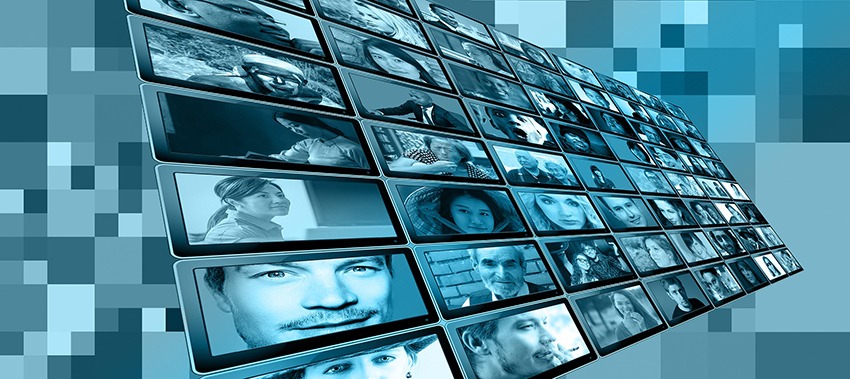
Blog

Open access for the world’s largest human migration
18/06/2020
Margarita Victoria Gomez
At the frontier of knowledge, people in refugee situations have also entered the remote education since March 2020, when humanity experienced the greatest human migration in the world known to us. In an attempt to contain the covid-19, caused by the severe acute respiratory syndrome coronavirus 2 (SARS-CoV-2), social live and education have been interrupted; institutions have been closed, but schools and universities are providing immediate online support, especially to the most vulnerable people to facilitate the continuity of learning. In each continent gradually and almost in unison, almost 190 countries closed their borders also their educational institutions and 1.5 billion children, young and adults migrated to the open cyberspace, using digital platforms, materials digitized through the remote learning, or distance education.
The world stopped and looked away from the 5G commercial war between the US and China, to look at the ‘pandemic war’, and the situation, while tense, seems unlikely to lead to really conventional war.
The covid-19 spread rapidly among people from December 2019, from Wuhan, China, and on the 11th of March 2020, the World Health Organization (WHO) issued a formal declaration to the world population that it was a pandemic. Then, on the 19th of that month, the United Nations Educational, Scientific and Cultural Organization (Unesco) established and launched the Global Education Coalition (2020), to face the educational disruption. With public and private partners, that contribute with innovative distance education solutions in several countries using a wide range of technologies. The corporate actors, among others, are Google’s G Suite, EdTech Foreducation, NGOs, TV channels, WHO, International Labor Organization (IOT), Unicef, World Bank, OECD, Microsoft, Facebook, and BBC.
In the countries, face-to-face classroom were replaced by virtual classes during covid-19, although the majority of countries in the global south are unable to implement these guidelines. According to Gustavo Simões (2020), in short interview, distance education was initially adopted, but did not continue, and only essential activities and services related to the rectory, food, student housing, and Portuguese courses for refugees were maintained. The decision not to continue offering remote education or distance education is due to two complications: the poor quality of the internet connection, unstable and unreliable, and the student’s access to the internet via cell phone, without a computer. So, the decision was made not to discriminate and distance people from the educational process, and it was decided to exceptionally suspend academic activities, and establish a new schedule.
It became evident that the situation exposed social, digital and sanitary apartheid, since most students and teachers do not have an Internet connection at home, many do not even have a home, as it is the case of refugees living in camps. This is very delicate because it includes learning and certifying the national language – of refugees – to obtain essential documentation, health care, legal attention and the protection against xenophobic acts, among other issues.
Although the situation of refugee people and “to stay home” are different issues, refugees were forced to leave their countries due to serious violations of human rights, they found refuge in other countries and today vulnerable, they can still die in the pandemic. Different policies and actions are implemented, but always observing international agreements and legal provisions. The closing of borders and home schooling are exceptional global measures.
But the situation requires looking at the most vulnerable people in each country. And the refugee conditions as they belong to one of the most vulnerable groups, with serious problems in finding work, keeping rent, staying at home and having basic income and health services. It is estimated that, especially now, 79.5 million people in the world have been forced to leave their country, and 29.6 million are refugees (UNHCR, 2019). In principle, they did not want to leave their own country, and in considering that refugees do not pose a threat to national or international democracy, the arriving countries admit that by fundamental international law it is their responsibility to protect them. In view of national legislation and international agreements, in the signatory countries, religion, political orientation, ethnic group, origin are not grounds for discrimination. In spite the criteria aforementioned so that refugees are not discriminate against, they can still obtain residence without necessarily being able to exercise citizenship.
Education is fundamental for citizenship and change, in the educational sphere 63% of refugee children in the world were enrolled in basic education, and 24% of adolescents. In addition, the 2018 Report (UNHCR) recognizes that out of a total of 36% of higher education students in the world, almost 3% are refugee students. The multilateral organizations are contributing in these processes, to integrate refugee people as they bring culture, knowledge and professional training.
Barnett e Martha Finnemore (2004)¹ considers that States enter networks of transnational and international social relations that strongly shape their perceptions and preferences. And international organizations such as Unesco and the World Bank influence directly or indirectly, so that States accept political goals and social values in guiding the economy, science and the structure itself. It is evident that international organizations as actors on the global stage have an important presence in relation to countries on the periphery of global capitalism, despite their limited autonomy to the resources of member states. In fact, in the midst of a pandemic expansion, the United States withdrew its contribution to WHO. On the other hand, Unesco partners with companies to achieve its objective and United Nations High Commissioner for Refugees (UNHCR) works for the rights, and to mitigate the refugees situation. It is important to highlight the action of the UNHCR to articulate proposal of higher education, and other activities for refugees.
For this, education and migration challenge us more than ever to rethink them in contemporary international society post covid-19 and the policy actions that put autonomy and public education on the agenda. This exposes and deepens historical gaps and, in the sense of Agambem (2015)², we are living in a state of need that leads to taking exceptional measures that are very delicate to the international community.
It is essential that education as an international people’s right, generates a profound interdisciplinary and multicultural change in the university with the various digital devices for open access and permanence. The inclusion of diversity and plurality as well as open, digital, learning resources opens up new virtual educational territorialities, perhaps strengthening the pedagogy of virtuality, which will make it possible to recognize the bad experiences of migrants and refugees every day, especially in the time of covid-19.
In this sense, opening the university to inter / transdisciplinary dialogue with the contributions of sociology, political science, educational science and international relations in specific aspects of the theories of migration and education, is in close relationship with the existing conditions of people aiming the transformation.
Educating through research, alerting to the fact that the higher education community has recently become aware of its responsibility in this case too, reflecting the crisis and the dilemmas it will have to face post covid-19. It is relevant to consider these challenges in higher education, in order to contribute to the mobility and well-being of people, as it could achieve dual citizenship.
For this reason, some open, face-to-face or distance learning experiences with refugees are being discussed, which may become one of the trends in this pedagogical process. This approach to political, cultural and pedagogical changes can be seen in its complexity as a whole in the network that can contribute to situate and decolonize education, on the frontier of knowledge, which is the role of the university. In particular, it is necessary to work so that the exceptional measures that may come, don’t securitize nor judicialize refugees nor education, that is, that the exceptional measures that suspend the law don’t become the “new normal”.
At the time of covid-19, it is important to review the agreements with multilateral organizations in the areas of health, education and migration, as these are moments that demand greater solidarity and generosity. Aspects of nature, humanity, health, education and security and immigration cannot be overlooked. The education opened by the covid-19 is, therefore, hosting the largest human migration in the world, arriving to the cyberspace. Preserving openness is a responsibility to be assumed if accompanied by a public policy responsible for international scientific cooperation. The university is, without a doubt, the place where the plural dialogue between reality, knowledge and people’s education takes place, which enables the transformation, precisely through the production of new knowledge and the democratization of science and technology for the common good, which will be guarantee for the exercise of citizenship.
1 Barnett, Michael; Finnemore, Martha. 2004. Rules for the World: International Organizations in Global Politics. Ithaca: Cornell University Press
2 Agamben, Giorgio. 2015. Estado de exceção: [Homo Sacer, II, I]. Coleção Estado de Sítio. São Paulo: Boitempo
Margarita Victoria Gomez, Doctor of Education, Researcher at the International Relations Research Centre, São Paulo University